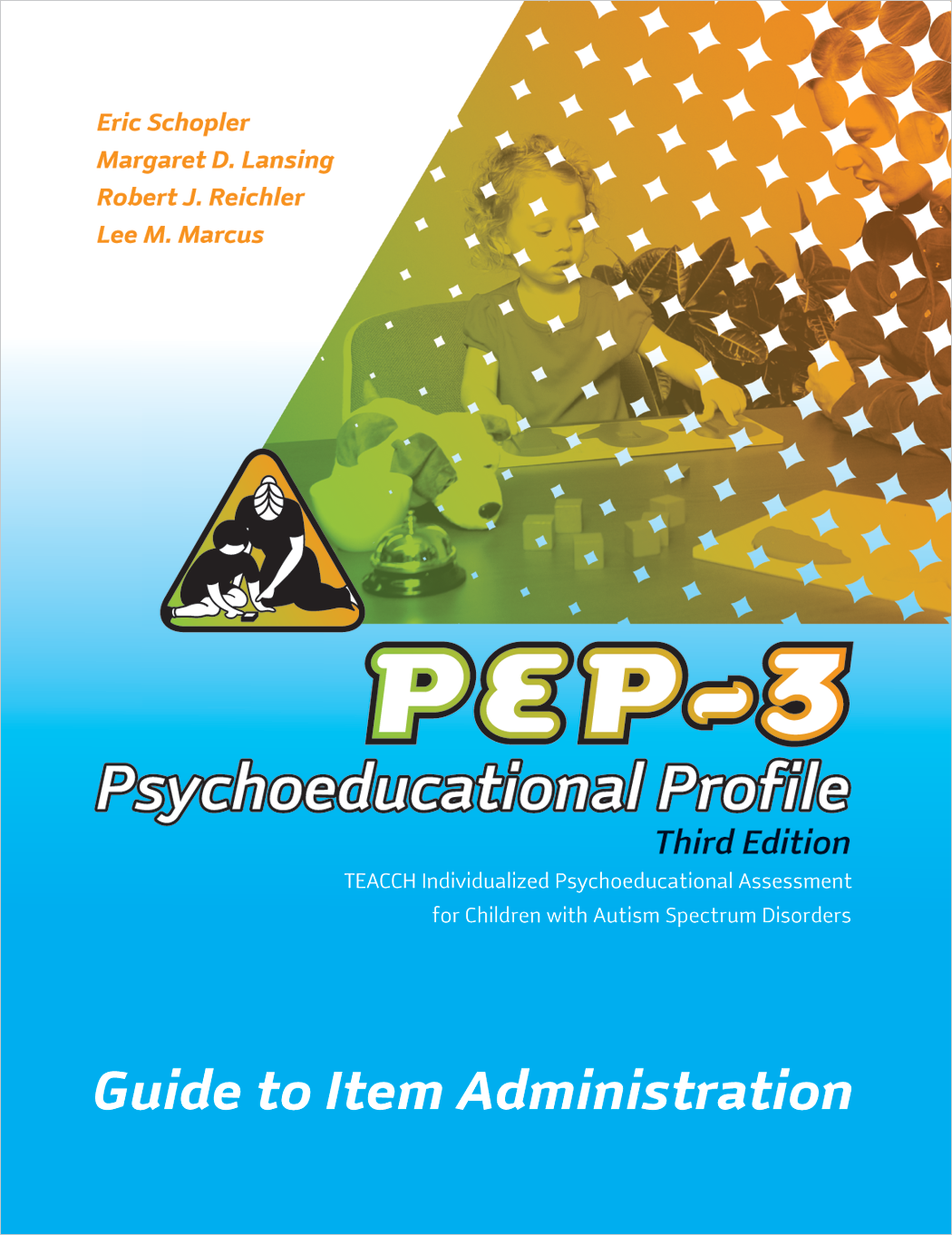Please specify the quantity of product(s).



Pychoeducational Profile-Third Edition (PEP-3)
| Item | Product | Price | QTY |
|---|---|---|---|
| 32662 | Pychoeducational Profile-Third Edition (PEP-3) Kit | $709.00 | |
| 32662R | PEP-3 Response Booklets, Pk/10 | $31.00 | |
| 32662C | PEP-3 Caregiver Report Forms, Pk/10 | $31.00 | |
| 32662S | PEP-3 Examiner Scoring/Summary Booklets, Pk/10 | $44.00 | |
| 32662M | PEP-3 Manual | $93.00 | |
| 32662G | PEP-3 Guide to Item Administration | $63.00 | |
| 32662P | PEP-3 Picture Book | $63.00 |
Assesses skills and behaviors of children with Autism and communicative disorders.
Eric Schopler, Margaret D. Lansing, Robert J. Reichler, Lee M. Marcus
- Age Range: 6 months-7 years
- Time: 45 minutes-1½ hours
This revision of the widely-used Psychoeducational Profile meets the need for an assessment tool to assist in the educational programming for young children (ages 3-5) with communicative disabilities. It is particularly useful in planning for older students’ Individualized Education Programs (IEPs), as it provides additional data that identifies special learning strengths and teachable skills.
The PEP-3 Profile graphically charts uneven and idiosyncratic development, emerging skills and autistic behavioral characteristics. Function domains have been revised to reflect current research and clinical concerns, especially in the area of social and communication functions.
Scoring has been quantified as 0, 1 and 2, with each score clearly defined, making statistical comparison more accurate. However, the flexibility of the previous system (pass/emerge/fail) has been maintained.
A new Caregiver Report utilizes parent input, prior to administration of the assesment. This provides an estimate of this child’s developmental level, compared to normal children, and helps orient teachers to the student’s inconsistencies.
It addresses Developmental Levels, Diagnostic Categories and Degree of Problem and includes three subtests:
- Problem Behaviors
- Personal Self-Care
- Adaptive Behavior
Normative data was collected from 2002-2003, with large national samples of children in the autism spectrum, and typical children ages 2-7.5 years. This is the first normative data provided for comparison of a child’s PEP-3 results with children of a comparison group.
Reliability coefficients have been computed, by age, for subgroups within the normative sample (i.e., males, females, white, black and Hispanic-American). Validity evidence is provided for children in the Autism Spectrum for all areas measured by the PEP-3.
All toys and materials required for the administration of the PEP-3 (except food, drink, and a light switch) are included with the Test Kit.
The complete PEP-3 Kit also includes a Manual, Guide to Item Administration, Picture Book, 10 each of the Examiner Scoring/Summary Booklets, Response Booklets and Caregiver Report Forms.